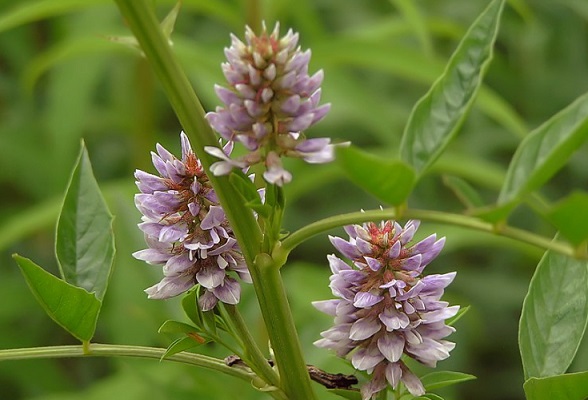Phytochemicals from Herbs Taxus and Glycyrrhiza Show Hope Against Gastric Cancer
Nikhil Prasad Fact checked by:Thailand Medical News Team Sep 19, 2025 4 months, 2 weeks, 10 hours, 43 minutes ago
Medical News: Gastric Cancer Remains a Global Burden
Gastric cancer continues to be one of the world’s most serious health threats despite improvements in medical treatments and diagnostic tools. Scientists are increasingly looking at natural products as potential solutions, as many plants contain molecules that can slow down or block cancer growth. In this
Medical News report, researchers from Clínica San Cayetano and Universidad de Las Américas in Ecuador, Universidade da Coruña in Spain, Universidade dos Açores in Portugal, and Universidad San Francisco de Quito USFQ in Ecuador explored thousands of natural compounds for their possible use in gastric cancer therapy.
 Phytochemicals from Herbs Taxus and Glycyrrhiza Show Hope Against Gastric Cancer
How the Study Was Conducted
Phytochemicals from Herbs Taxus and Glycyrrhiza Show Hope Against Gastric Cancer
How the Study Was Conducted
The team applied an advanced computer-based modeling method known as in silico ensemble analysis. This approach allowed them to test and predict which natural molecules might stop cancer cells from growing. The study focused on four types of gastric cancer cell lines: AGS, NCI-N87, BGC-823, and SNU-16. Instead of traditional trial-and-error methods, researchers used databases containing over 100,000 compounds from more than 21,000 plant species. By applying predictive algorithms, they were able to quickly narrow down the best candidates.
Key Findings from the Analysis
The models performed remarkably well, improving accuracy by 12 to 15 times compared to random selection. From this process, 340 promising molecules were identified. These included well-known compounds such as paclitaxel, orsaponin (OSW-1), glycybenzofuran, and glyurallin A—all previously recognized for anticancer activity, which confirmed the validity of the study. Interestingly, the compounds belonged to powerful natural groups such as flavonoids, taxane diterpenoids, isoflavonoids, tryptophan alkaloids, and phloroglucinols.
Several plant families stood out as rich sources of bioactive compounds. Taxus and Glycyrrhiza, both already linked to cancer-fighting properties, were confirmed as important. Meanwhile, lesser-known genera such as Elaphoglossum and Seseli emerged as exciting new candidates that require further laboratory research.
What This Means for the Future
This research highlights how computer technology and natural product libraries can work together to uncover new treatments for gastric cancer. While much of the work still needs experimental validation, the study provides a clear roadmap for identifying plant-based compounds that may one day lead to effective therapies. If confirmed in further studies, some of these natural molecules could be developed into new medicines that offer patients safer and more accessible treatment options. The possibility of expanding cancer treatment from traditional drugs to nature-inspired compounds opens new hope for millions of people around the world.
The study findings were published as an abstract in the peer reviewed journal: Frontiers in Bi
oinformatics and the full peer reviewed study will be published soon.
https://www.frontiersin.org/journals/bioinformatics/articles/10.3389/fbinf.2025.1642039/abstract
For the latest on Herbs and Phytochemicals, keep on logging to Thailand
Medical News.
Read Also:
https://www.thailandmedical.news/news/covid-19-triggers-chronic-gastritis-alters-stomach-cell-functions-and-push-gastric-cells-toward-cancer-like-states
https://www.thailandmedical.news/news/new-study-explores-the-genetic-connection-between-covid-19-and-gastric-cancer
https://www.thailandmedical.news/news/texas-md-anderson-cancer-center-warns-that-covid-19-mrna-vaccines-elevate-pd-l1-levels-disrupting-lung-cancer-treatments-progressing-other-cancers
https://www.thailandmedical.news/news/pd-l1-and-gastric-cancer
